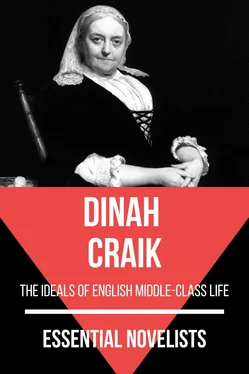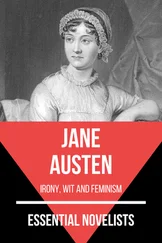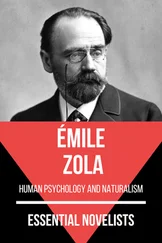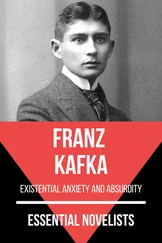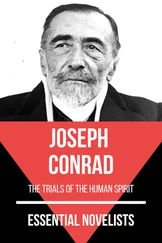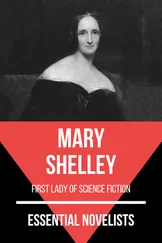“Yes, thank God!”
“Ay, indeed; thank God!”
He covered his eyes for a minute or two, then rose up pale, but quite himself again.
“Now let us go and fetch your father home.”
We found him on John’s bed, still asleep. But as we entered he woke. The daylight shone on his face — it looked ten years older since yesterday — he stared, bewildered and angry, at John Halifax.
“Eh, young man — oh! I remember. Where is my son — where’s my Phineas?”
I fell on his neck as if I had been a child. And almost as if it had been a child’s feeble head, mechanically he smoothed and patted mine.
“Thee art not hurt? Nor any one?”
“No,” John answered; “nor is either the house or the tan-yard injured.”
He looked amazed. “How has that been?”
“Phineas will tell you. Or, stay — better wait till you are at home.”
But my father insisted on hearing. I told the whole, without any comments on John’s behaviour; he would not have liked it; and, besides, the facts spoke for themselves. I told the simple, plain story — nothing more.
Abel Fletcher listened at first in silence. As I proceeded he felt about for his hat, put it on, and drew its broad brim close down over his eyes. Not even when I told him of the flour we had promised in his name, the giving of which would, as we had calculated, cost him considerable loss, did he utter a word or move a muscle.
John at length asked him if he were satisfied.
“Quite satisfied.”
But, having said this, he sat so long, his hands locked together on his knees, and his hat drawn down, hiding all the face except the rigid mouth and chin — sat so long, so motionless, that we became uneasy.
John spoke to him gently, almost as a son would have spoken.
“Are you very lame still? Could I help you to walk home?”
My father looked up, and slowly held out his hand.
“Thee hast been a good lad, and a kind lad to us; I thank thee.”
There was no answer, none. But all the words in the world could not match that happy silence.
By degrees we got my father home. It was just such another summer morning as the one, two years back, when we two had stood, exhausted and trembling, before that sternly-bolted door. We both thought of that day: I knew not if my father did also.
He entered, leaning heavily on John. He sat down in the very seat, in the very room, where he had so harshly judged us — judged him.
Something, perhaps, of that bitterness rankled in the young man’s spirit now, for he stopped on the threshold.
“Come in,” said my father, looking up.
“If I am welcome; not otherwise.”
“Thee art welcome.”
He came in-I drew him in-and sat down with us. But his manner was irresolute, his fingers closed and unclosed nervously. My father, too, sat leaning his head on his two hands, not unmoved. I stole up to him, and thanked him softly for the welcome he had given.
“There is nothing to thank me for,” said he, with something of his old hardness. “What I once did, was only justice — or I then believed so. What I have done, and am about to do, is still mere justice. John, how old art thee now?”
“Twenty.”
“Then, for one year from this time I will take thee as my ‘prentice, though thee knowest already nearly as much of the business as I do. At twenty-one thee wilt be able to set up for thyself, or I may take thee into partnership — we’ll see. But”— and he looked at me, then sternly, nay, fiercely, into John’s steadfast eyes —“remember, thee hast in some measure taken that lad’s place. May God deal with thee as thou dealest with my son Phineas — my only son!”
“Amen!” was the solemn answer.
And God, who sees us both now — ay, NOW! and, perhaps, not so far apart as some may deem — He knows whether or no John Halifax kept that vow.
––––––––
“Well done, Phineas — to walk round the garden without once resting! now I call that grand, after an individual has been ill a month. However, you must calm your superabundant energies, and be quiet.”
I was not unwilling, for I still felt very weak. But sickness did not now take that heavy, overpowering grip of me, mind and body, that it once used to do. It never did when John was by. He gave me strength, mentally and physically. He was life and health to me, with his brave cheerfulness — his way of turning all minor troubles into pleasantries, till they seemed to break and vanish away, sparkling, like the foam on the top of the wave. Yet, all the while one knew well that he could meet any great evil as gallantly as a good ship meets a heavy sea — breasting it, plunging through it, or riding over it, as only a good ship can.
When I recovered — just a month after the bread-riot, and that month was a great triumph to John’s kind care — I felt that if I always had him beside me I should never be ill any more; I said as much, in a laughing sort of way.
“Very well; I shall keep you to that bargain. Now, sit down; listen to the newspaper, and improve your mind as to what the world is doing. It ought to be doing something, with the new century it began this year. Did it not seem very odd at first to have to write ‘1800’?”
“John, what a capital hand you write now!”
“Do I! That’s somebody’s credit. Do you remember my first lesson on the top of the Mythe?”
“I wonder what has become of those two gentlemen?”
“Oh! did you never hear? Young Mr. Brithwood is the ‘squire now. He married, last month, Lady Somebody Something, a fine lady from abroad.”
“And Mr. March — what of him?”
“I haven’t the least idea. Come now, shall I read the paper?”
He read well, and I liked to listen to him. It was, I remember, something about “the spacious new quadrangles, to be called Russell and Tavistock Squares, with elegantly laid out nursery-grounds adjoining.”
“It must be a fine place, London.”
“Ay; I should like to see it. Your father says, perhaps he shall have to send me, this winter, on business — won’t that be fine? If only you would go too.”
I shook my head. I had the strongest disinclination to stir from my quiet home, which now held within it, or about it, all I wished for and all I loved. It seemed as if any change must be to something worse.
“Nevertheless, you must have a change. Doctor Jessop insists upon it. Here have I been beating up and down the country for a week past —‘Adventures in Search of a Country Residence’— and, do you know, I think I’ve found one at last. Shouldn’t you like to hear about it?”
I assented, to please him.
“Such a nice, nice place, on the slope of Enderley Hill. A cottage — Rose Cottage — for it’s all in a bush of cluster-roses, up to the very roof.”
“Where is Enderley?”
“Did you never hear of Enderley Flat, the highest tableland in England? Such a fresh, free, breezy spot — how the wind sweeps over it! I can feel it in my face still.”
And even the description was refreshing, this heavy, sultry day, with not a breath of air moving across the level valley.
“Shouldn’t you like to live on a hill-side, to be at the top of everything, overlooking everything? Well, that’s Enderley: the village lies just under the brow of the Flat.”
“Is there a village?”
“A dozen cottages or so, at each door of which half-a-dozen white little heads and a dozen round eyes appeared staring at me. But oh, the blessed quiet and solitude of the place! No fights in filthy alleys! no tan-yards — I mean”— he added, correcting himself —“it’s a thorough country spot; and I like the country better than the town.”
“Do you, still? Would you really like to take to the ‘shepherd’s life and state,’ upon which my namesake here is so eloquent? Let us see what he says.”
Читать дальше
